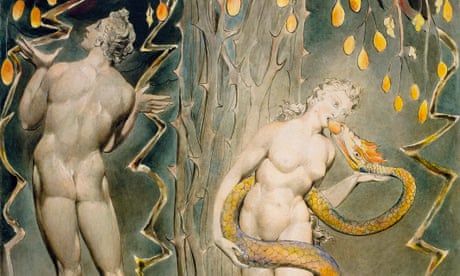
The writers, philosophers and politicians who have raided Milton’s epic poem for inspiration
In 1818 Mary Shelley published Frankenstein, the story of a man who trespasses on God’s turf by crafting a new form of life. She took its epigraph from Book X of John Milton’s Paradise Lost, when Adam rages at God like a teenager who didn’t ask to be born. Shelley returned to Milton for 1826’s The Last Man, a grim, grief-sodden read about an annihilating pandemic: “Let no man seek / Henceforth to be foretold what shall befall / Him or his children.” One novel describes the creation of life, the other its destruction, and both open with Paradise Lost.
It is no surprise that Milton’s epic figured in the genesis of science fiction. Orlando Reade suggests that it “might be the most influential poem in English”, frequently stripped for parts. In relatively recent years, it has furnished the titles of Philip Pullman’s His Dark Materials trilogy and Nick Cave’s Red Right Hand, influenced the collapse of the candy-pink Eden in Greta Gerwig’s Barbie and undergirded the series three finale of The Good Place, whose title, Pandemonium, is one of many Miltonic neologisms. As a young man, Milton dreamed of creating an epic poem “so written to aftertimes, as they should not willingly let it die”. That hope was fulfilled, in ways he could not have comprehended.
Continue reading...